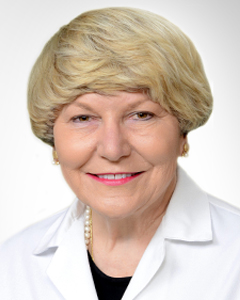Study Involving Twins Highlights Genetics’ Role in Cancer Risk
It’s common knowledge that family genetics play a role in the development of cancer, but a new study indicates that there’s an increased risk of cancer in family members who share an identical genetic makeup: twins.
The Scandinavian study involved more than 200,000 identical and fraternal twins who were tracked for more than 32 years. About one-third of participants developed cancer during the study. Researchers found that when one identical twin developed cancer, the other twin’s cancer risk increased by 14 percent. For fraternal twins, the increased risk was much lower — only 5 percent.
In the study, genetics role in the development of cancer differed greatly depending on the type of cancer. Genetics was a greater risk factor for the development of melanoma, prostate, skin and testicular cancers. For melanoma, the risk was 58 percent higher due to genetics; 57 percent higher in prostate cancer and 43 percent higher in skin cancer. A man was 28 times more likely to get testicular cancer if his identical twin had the disease and 12 times more likely if his fraternal twin had it. There was also significant heritability (the influence of genetics) observed for ovarian cancer, kidney cancer, breast cancer, and uterine cancer.
Other cancers, including colon, lung and rectal cancer, were influenced more by environmental and lifestyle factors. Head and neck cancer had the lowest increased risk due to genetics, at only 9 percent.
The Link Between Genetics & Cancer
The study found that 33 percent of cancer risk is due to genetics or inherited factors. However, if genetics were the sole determining factor in someone’s cancer risk, for every pair of twins in which one developed cancer, the other should have a much more elevated chance of developing the disease.
This highlights the fact that environmental factors are still important. For example, if one twin gets melanoma and the other has an increased risk of the disease but does nothing to protect his or her skin from UV exposure, then this also may increase that twin’s skin cancer risk. Since twins typically grow up in the same socioeconomic and local environments, such issues as nutrition, lifestyle, secondhand smoke, and exposures to carcinogens would be very similar in exposure and duration. In addition, minor variations in our genes may make us more or less susceptible to environmental causes of cancer.
However, family cancer syndromes still exist. For example, we know that mutations in the BRCA1 and BRCA2 genes passed through families cause 3% of all breast cancers and 10% of all ovarian cancers, according to the Centers for Disease Control and Prevention. According to the American Cancer Society, up to 10% of all cancers are caused by inherited gene defects from a parent. Closeness of relatives also is important when it comes to genetic risk factors. Cancer in a parent or sibling (so called, first degree relatives) may be more concerning than if a distant cousin or uncle has cancer.
The study highlights the importance of understanding your genetic risks, especially if you have a first degree relative with cancer. Other red flags in your family history include early age at diagnosis of cancer, and the same cancer in two or more close relatives on the same side of the family and in multiple generations. Also, if you or a relative have had multiple types of cancer or bilateral cancer, some rare cancers, and clusters of cancers, e.g. breast-ovarian-pancreatic (BRCA1/2 related); breast-thyroid-endometrial-kidney (Cowden syndrome); breast-sarcoma-adrenocortical and brain tumors (Li-Fraumeni syndrome); colon and endometrial cancer (Lynch syndrome). Finally, certain tumors can be associated with hereditary cancer syndromes such as: triple negative breast cancer and BRCA, male breast cancer and BRCA2, adrenal cortical cancer and Li-Fraumeni syndrome, medullary thyroid cancer and MEN2, and pheochromocytoma and MEN2, VHL and SDH mutations.
If you have an increased genetic risk for cancer, it’s crucial to follow healthy lifestyle habits that can reduce your risk. If you have a family history of lung cancer, quitting can lower your risk. If you are overweight, more diet and exercise can help you lose weight and lower your risk for colon cancer and several other chronic diseases.
If you have a family history of cancer and are concerned about your risk, talk to your doctor. He or she can refer you to the Cancer Genetics Center at Orlando Health, which offers genetic counseling. For more information, please call 321-841-GENE or visit http://www.orlandohealthcancer.com/







